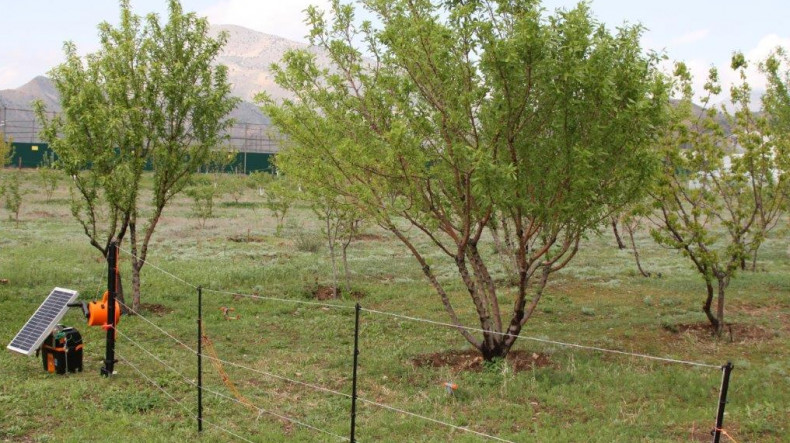
Introduction of electric fences program implemented in Ararat – Viva-MTS
Because of the continuous human-wildlife conflict, there are still cases of bears appearing in the territory of different settlements. Farms are the most affected by animals approaching settlements in search of food. Modern systems like electric fences are quite effective for solving a problem that requires a balanced approach. They allow preventing the entry of wild animals without deepening the human-wildlife conflict.
Viva-MTS and the Foundation for the Preservation of Wildlife and Cultural Assets (FPWC) continue to support regional structures. In order to protect the farms from bears, the partners implemented the such important program in the region of Ararat. Electric fences with the modern technology were provided to the enlarged community of Vedi, region of Ararat. This will protect farms from destruction, Viva-MTS said in a press release on Tuesday.
Viva-MTS is a technological leader in the sphere of telecommunications and it has been proven many times with different projects. Beyond the traditional business, we implement Corporate Social Responsibility programs and seek to make everything we do technologically advanced. The "Electrical fences" program provides mutual protection. Protecting wild animals, farmers also protect themselves from attacks from the same animals. The "Electric fences" program provides mutual protection. Farmers protect themselves from attacks by wild animals, and the same time protecting those animals. The idea of this joint program has not only provided farms with some kind of objective tools, but we can also say that we are trying to contribute to the development of agricultural culture. I think this is a very good example of how people should take care of everything they do, develop, and what is really important to them," - Viva-MTS General Director Armen Avetisyan said.
“The effectiveness of the electric fences will be measurable when the farmer properly ensures its technical use: properly mounts it, gives the required connections and checks the voltages. We will train them beforehand,” said the founding director of the Foundation for the Preservation of Wildlife and Cultural Assets (FPWC) Ruben Khachatryan.
The electric fences donated to the residents are suitable for flexible use for beekeepers on the move throughout the year and farmers traveling to remote pasture: it’s easy to transport, provides local application, works with high voltage, but with low power (amperage). This assures that animals will stay physically safe and will not get harmed.
Farmers using these electric fences can also fence an area of 7500 m2 in 10-15 minutes. The system consists of a solar panel, a micro-converter, a storage battery, a generator and a 300 linear meter fence that can be quickly assembled and disassembled.
.jpg)
.jpg)
Related news
- 'The Woman...': Viva-MTS project dedicated to women's month
- Viva-MTS helps improve family's quality of life in border village
- Information on Viva-MTS coverage map and technologies made publicly available
- Yet another success by Viva-MTS and Soldier's Home: the story of 22-year-old Hayk
- Viva-MTS: side by side with the families getting personal assistant support
- Viva-MTS: '+100 minutes' and '+300 minutes' services now available for 'X' and 'Y' tariff plans subscribers
- Viva-MTS: Orthotics - after the wounding
Newsfeed
Videos






























